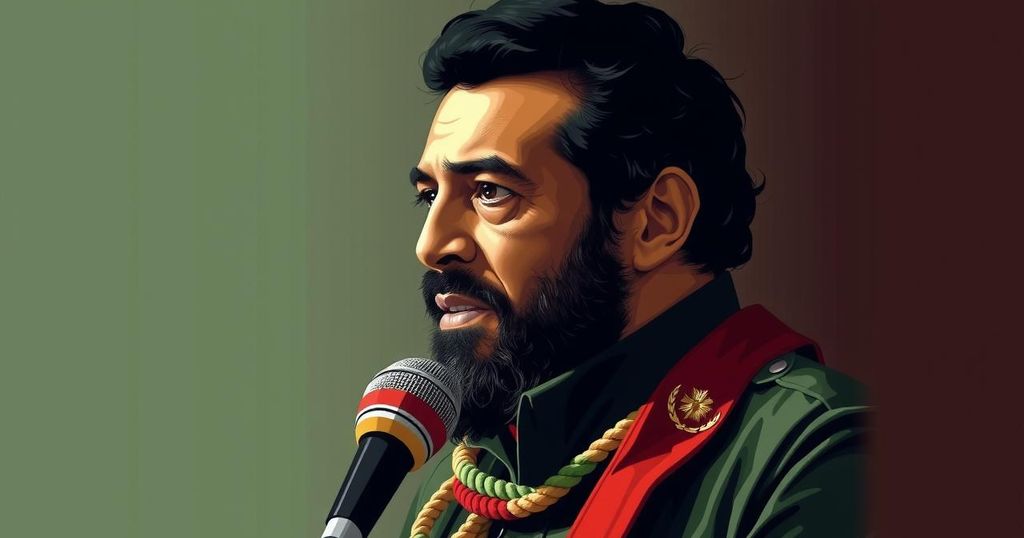Muammar al-Qaddafi, the de facto leader of Libya from 1969 until his death in 2011, rose to power through a military coup and implemented a system of Islamic socialism while maintaining strict control over the government. His regime faced significant challenges after 2011 when popular uprisings against his rule ensued, leading to international intervention and ultimately his death at the hands of rebel forces. Qaddafi’s legacy is marked by both transformative policies and widespread human rights abuses, leaving a complex historical footprint in Libya and beyond.
Muammar al-Qaddafi, born in 1942 near Sirte, Libya, was the dominant political figure in Libya from 1969 until his ousting in 2011. A military officer who led a coup to dethrone King Idris I, Qaddafi established a regime marked by Islamic socialism, the expulsion of foreign military bases, and an insistence on nationalizing oil resources. He authored “The Green Book,” promoting his vision of governance through decentralized popular committees while consolidating power himself. Qaddafi cultivated a controversial international image, supporting various revolutionary groups, which antagonized Western nations, particularly following the Lockerbie bombing incident that led to severe sanctions against Libya. Throughout his tenure, Qaddafi sought to unify the Arab world but faced considerable resistance, ultimately becoming known for his erratic behavior on the global stage. Following widespread protests in Libya in early 2011, driven by unrest in neighboring Tunisia and Egypt, Qaddafi resorted to violent repression to quell dissent. Despite initially maintaining control, the opposition gained momentum, prompting international intervention led by NATO. Qaddafi’s regime ultimately fell when rebel forces captured Tripoli in August 2011. He was killed shortly thereafter in Sirte on October 20, marking the end of his 42-year rule. His leadership left a complex legacy, characterized by significant social and economic changes in Libya juxtaposed with human rights abuses and international isolation.
Muammar al-Qaddafi’s rise to power began with his military education and subsequent coup in 1969 that overthrew the monarchy in Libya. He positioned himself as a champion of Arab nationalism and socialism, promoting policies that emphasized the nationalization of key industries and strict adherence to Islamic principles. His leadership style evolved into a form characterized as a jamāhīriyyah, aimed at creating a decentralized government structure while effectively maintaining autocratic control. Qaddafi’s foreign policies, especially his funding of various revolutionary movements and involvement in terror activities, brought Libya into conflict with Western nations, leading to sanctions and political isolation. The socio-political landscape of Libya changed dramatically in 2011 when domestic unrest echoed the Arab Spring, challenging Qaddafi’s longstanding regime. His response to the uprisings, including the use of military force upon civilians, ultimately catalyzed international military intervention and his eventual demise.
In conclusion, the life of Muammar al-Qaddafi represents a pivotal chapter in Libyan history, characterized by significant political and social transformations alongside stark human rights violations and international conflict. His fall from power not only signified the end of a lengthy authoritarian regime but also raised questions regarding Libya’s future trajectory post-Qaddafi, as the nation grappled with the implications of an abrupt regime change. The legacy of Qaddafi’s rule serves as a cautionary tale about the complexities of governance in the Arab world and the repercussions of defiance against the will of the populace.
Original Source: www.britannica.com






